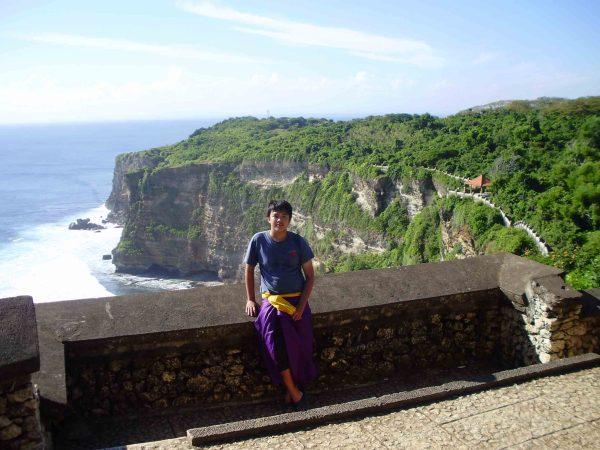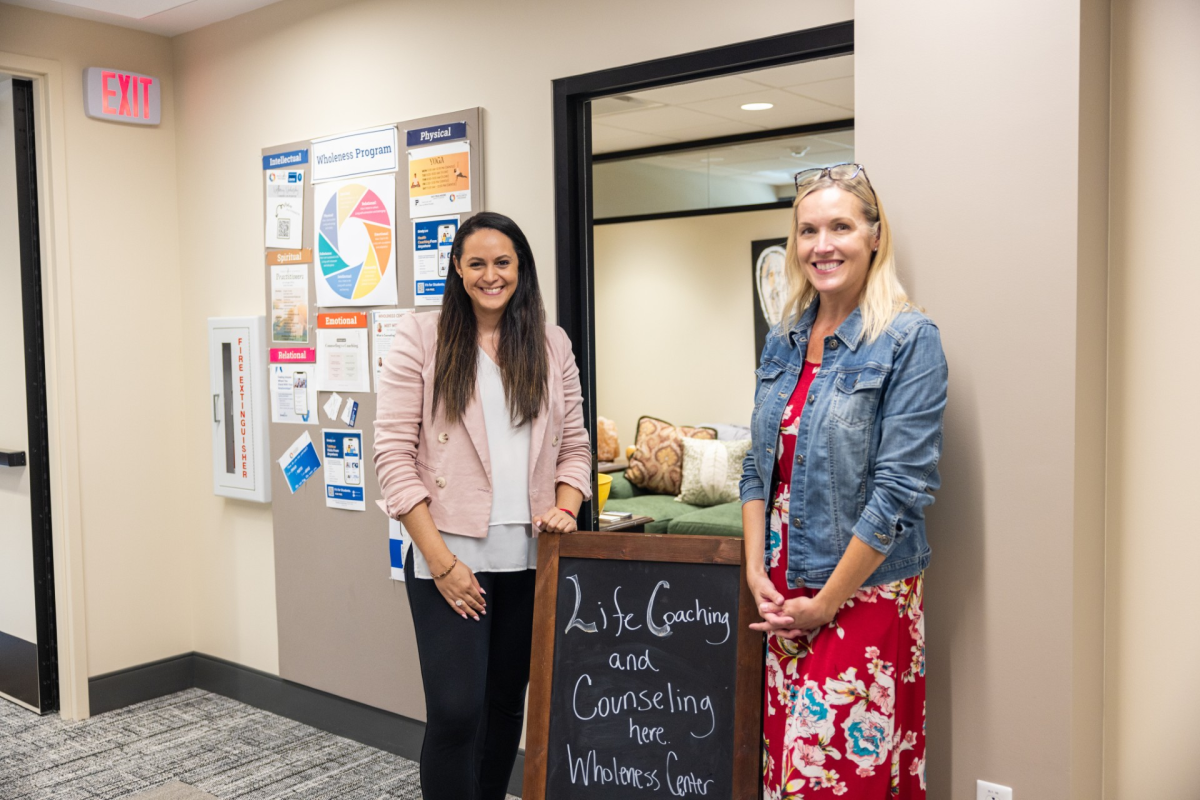The following is a brief introduction to the myriad of cultures represented at Principia. While our community benefits from an exposure to many varied backgrounds, I’ll start by examining three of them: Indonesia, Kenya, and Gabon. Junior Hans Harmadi is from Tangalang, outside of Indonesia’s capital, Jakarta. Senior Cliff Ubba Kodero is from Migori in the Western Nyanza Province of Kenya. And sophomore Dubien Tshimanga has lived in Houston, Texas, since he was 16, but grew up in Gabon in Western Africa.
Languages:
Indonesian is the national language of Indonesia, and in addition, many people learn English in school or by exposure to American movies and music.
Kiswahili is the national language of Kenya, and English is the language of instruction and commerce. Kodero’s first language, in addition to these, is Dholuo.
The official language of Gabon is French, which is used in school, although students also study English.
Religion:
At 86 percent, Indonesia has the world’s largest Muslim population, but Harmadi emphasized that it’s not an Islamic republic and that Indonesian Muslims tend to be moderate. Christianity, Hinduism, Buddhism, and Kong Hu Chu are also recognized offically, and Harmadi said that during Idul Fitri, the feast after the month of Ramadhan known in the West as Eid-ul Fitr, he congratulates his Muslim neighbors, and in return, they bring part of the feast to their Christian neighbors. Likewise, he said, his family shares some of their food when they are congratulated on Christmas. He added that Christian Science is not as widely accepted as other denominations, but when he explains what his religion is really about, his friends tend to respect it.
Kodero said that most religious communities today “draw on beliefs both from indigenous practices and from Christianity.” For example, ancestors, said to reside in the sky or underground, continue to play a role in many Christians’ lives. Anglicans, Roman Catholics, and Seventh Day Adventists are the most prevalent, and about 10 percent of the population is Muslim. Kodero said, “Mainstream churches draw on a rich African musical and dance tradition.” Christian Science has been in Kenya for a long time, but only recently has it begun to thrive. Kodero cited churches in Nairobi, Migori, Kisumu, and Nanyuki and said that Christian Science is appreciated for its emphasis on healing, although it has also been subject to skepticism. Still, he said, Christian Science is viewed as elitist because services are held in English only, whereas most churches hold services in Kiswahili and various dialects.
Gabon’s population is 55-75 percent Christian.
Common Misconceptions:
Harmadi has come across few misconceptions about Indonesia, if only because most people he’s talked with hardly know where Indonesia is on a map. He asked, “[if people] know where Australia is, how could [they not] see the huge archipelago above it?” He added that many people have heard of Bali, which is part of Indonesia.
According to Kodero, Some common misconceptions about Kenya are that every Kenyan is a long distance runner, that Kenya is poor and desperate, and that its leaders are corrupt.
Thoughts about the US
Although some extremists may deplore American imperialism, Harmadi said that his family and friends think it’s cool that he studies in the US. He said, “My friends envy the fact that I have snow on campus.” He also appreciates the diversity and ideological freedom in the US, as well as the liberal arts philosophy. In Indonesia, students choose their major before even being admitted to universities. Harmadi said, “As a chemistry major, I couldn’t possibly take a French or Graphic Design class in an Indonesian university, [like] what I’m doing this semester.”
Kodero said that people in Kenya “love the USA.” He also said that President Obama is popular in Kenya because his father was from Kenya.
Tshimanga said that Gabon’s governmental officials tend to put themselves before the people. He added that when he moved to the US, “how the people’s voices are more heard made me fall in love with this country.”
Food:
According to Harmadi, Indonesia’s spices are to blame for the fight between Portugal, Spain, England, and Denmark in the 1600s, when Indonesia was known as the Dutch Indies. He said his overall impression of American food, or at least that at Principia, is bland in comparison. Jambalaya, he said, is one food served here that might fit an Indonesian’s taste. He also pointed out that the hundreds of different local cultures in Indonesia account for a wide variety of foods.
Kenya’s staple food, according to Kodero, is ugali, made from maize (corn) meal “stirred in boiling water until it becomes a thick and smooth porridge” and accompanied by meat or stew and often greens (sukumawiki). Fish is popular, especially among Luos living on Victoria Lake and Kodero also said that teatime is a popular custom, thanks to the British colonial era, which ended in 1963.
Tshimanga’s favorite foods in Gabon are rice, beans, and fried chicken.
Lifestyle and Culture:
Harmadi feels that Americans are generally more outgoing and communicative than Indonesians, and that Indonesians don’t have as much freedom of speech as Americans. He also said that, although he knows fewer people in the US than in Indonesia, he knows more people who are divorced or have relatives who are divorced in the US. He had heard about this disparity before coming here, but he said “the number still amazes me.” One explanation, he said, is that marriage is taken more seriously at home, and that most people wait until they can support a family before getting married. He added that divorce is perceived negatively, and a lot of people may be unhappy in their marriages but don’t want to separate for fear of other’s opinions.
Kodero commented that, in Kenya, families are bigger than in the United States, with five kids on average. Aunts, uncles, and cousins are often included in the Kenyan family unit, and Kodero said, “Relatives play an important role in the wellbeing of an individual.” Another misconception concerns dowry. Kodero said, “Contrary to western belief, wives are not bought by dowry. Instead, dowry are paid as a form of appreciation to the girl’s family for raising a beautiful bride for the groom.” About the landscape, Kodero said, “Kenya is beautiful.” The highest point in Kenya is snow-peaked Mt. Kenya and the lowest point is the Indian Ocean, which is below sea level. Kodero added that the Maasai Mara is Kenya’s most famous game park.
In Gabon, family is very important. Tshimanga said that people are very open and up-front. For example, if someone is in need, he or she wouldn’t hesitate to ask a neighbor for assistance. He summed it up, saying, “In one word, there is solidarity in [Gabon].”
Post-grad plans:
Harmadi said that while he loves Indonesian culture and people, he likes the greater freedom and access in the US. He’s drawn, for example, to the greater volume of published, quality literature in the US He also said that as a chemistry major, his job prospects are better here. He thinks he might stick around for some time, at least to get some job experience or a master’s degree.

Kodero hopes to spend five years in the US after graduating, and then he wants to return to Kenya to teach courses in political science and international relations.
Tshimanga said he hopes to live either in Boston to work for The Mother Church or in New York after school.




